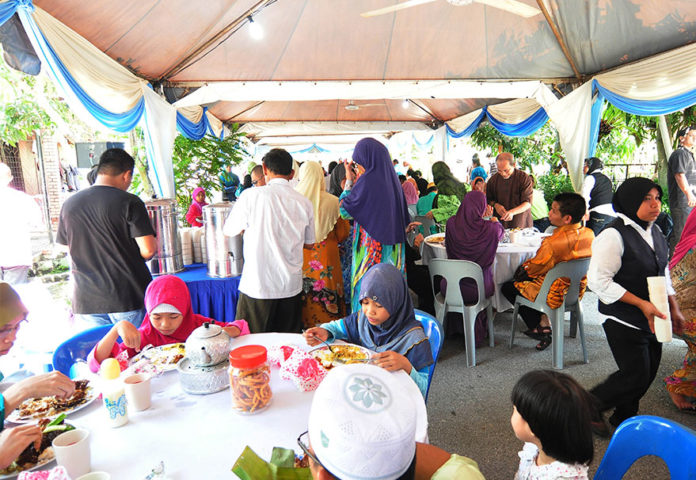- Planning a wedding during an economic slowdown needs some sacrifices and careful planning
- More and more young couples doing away with lavish ceremonies and tradition.
- Fuss-free weddings means more savings to start family life
Sarah and Fahmi, in their early 30s, wanted a fuss-free wedding and, thanks to careful planning and lots of common sense, they got one.
From the outset, the couple pledged to avoid a planning breakdown if possible and were prepared to give up some of the trappings of a traditional Malay ceremony to achieve their goal. They also aspired to keep the total expenditure within a budget of RM5,000.
They were not actually scraping the bucket but would like to use the extra money saved up for their big day for a honeymoon in Japan.
They opted for a high tea event at a mosque and roped in a caterer friend to put together a variety of local delicacies for guests, comprising relatives and good friends.
The newly-weds felt relieved that they had accomplished what they had set out to do. They flew off to Tokyo happy in the knowledge that their wedding had met their realistic needs.
They were two people who just wanted to get married without the fanfare associated with lavish weddings.
Happily, they may have have started a trend because many of their single friends say they also wish for something similar when they are ready to tie the knot.
More and more stories are emerging of young Malaysian couples shunning the dictates of wedding planners, preferring instead to find cheaper alternatives to create special elements.
The economic downturn does not mean that couples will keep their wedding plans on hold. Prince Charming will still want to marry his Princess but a recession may force the couple to organise one that is still memorable without burning a hole in their budgets.
Sarah, Fahmi and a growing number of Malaysians believe there is no justification for wedding insanity where there is an element of keeping up with the Joneses — people are constantly looking at their friends and acquaintances to see how they are doing in this department.
Malay Muslim couples have to consider the following time-honoured practices, among others, when working out their wedding preparations: merisik (investigation) prior to meminang(formalising the arrangement), pertunangan (a formal agreement to get married or engagement for those who favour it), wang belanja (money for expenses which the male side gives to the female side and this usually amounts to several thousand ringgit) and hantaran (exchange of gifts).
All these have to be sorted out before the actual ceremony, the akad nikah, which is the mandatory aspect of the proceeding, also known as marriage solemnisation.
Other activities include berarak or arriving in procession, bersanding (which literally means “sitting together of the bride and groom on the bridal couch”) and sambut menantu (welcoming the married couple).
Sarah and Fahmi decided to leave out the engagement, hantaran and bersanding components to reduce cost and headaches. They felt the akad nikah was the only requirement they should adhere to. The rest were frills.
Purists will bemoan their actions as a dilution of tradition but we have seen what happens to couples and their families when confronted by the wedding planning machinery and its attendant budgeting nightmare.
The family’s insistence on maintaining adat or tradition, obsession with superficial details and agony over possible loss of face conspire to turn Prince and Princess Charming into nervous wrecks. Some young couples yearn for freedom from restrictions imposed by their culture.
There is hope then for cash-strapped couples who are eager to start a new life together.
The best part of the careful planning and common sense exercise is that couples would be able to save cash which will allow them to begin married life with a little more income in their pockets.







